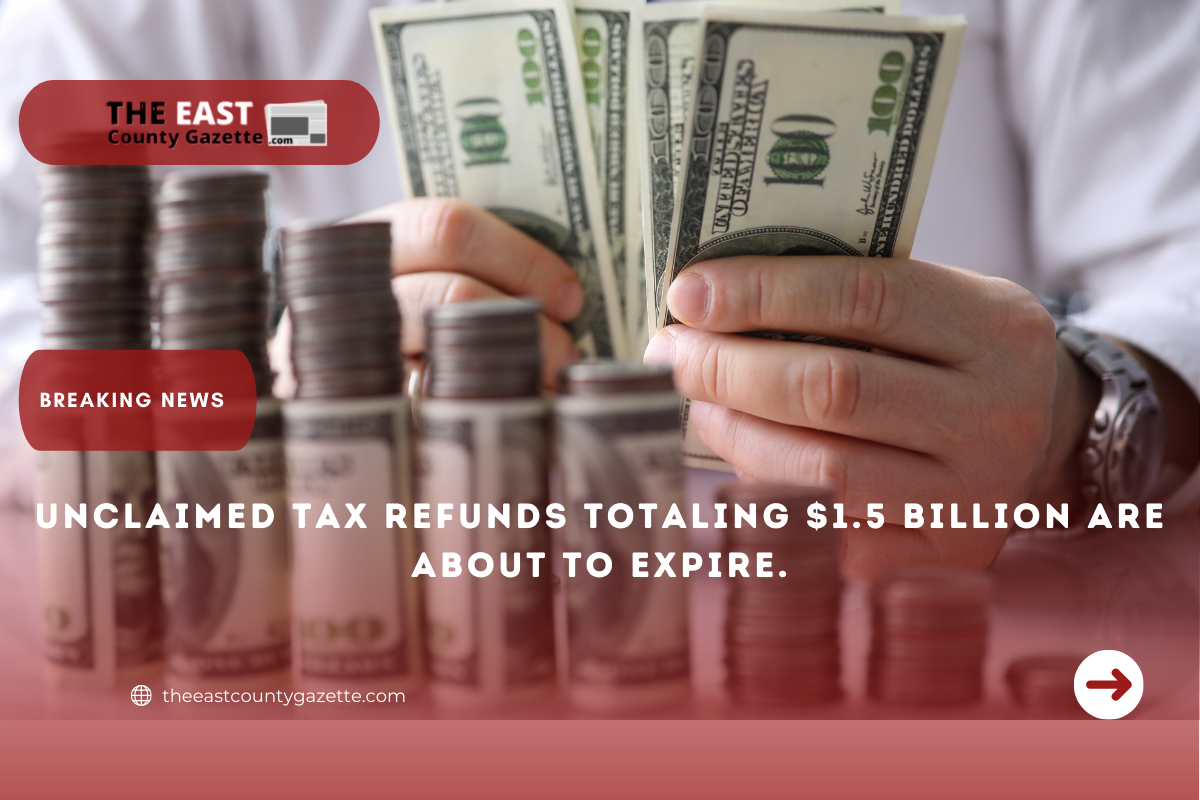The IRS may owe you hundreds of dollars if you don’t submit your 2018 taxes, but the time to recover that money is quickly approaching.
Unclaimed refunds of over $1.5 billion are piling up for around 1.5 million taxpayers who have yet to file their 2018 tax returns, according to the IRS. Moreover, $800 is the average tax refund.

The IRS, on the other hand, isn’t going to hand over the cash on demand. The sooner you submit back your taxes, the more likely it is that the IRS will honor an old refund you’re owed.
In a statement, IRS Commissioner Chuck Rettig stated, “People need to act immediately.” In order to receive a refund, taxpayers have only three years from the end of last year’s tax season to file a claim.
What about your 2021 tax return?
To begin the process of submitting your taxes using TurboTax, select your state.
Taxes are due on April 18 this year for most people because of a holiday recognized in Washington, D.C. If you owe back taxes for 2018, you must send them in by the deadline specified on your tax return.
If you don’t claim your refund by the due date, it will be forfeited. Or, rather, it “becomes property of the U.S. Treasury,” according to the IRS.
There was a state-by-state breakdown of the number of people who haven’t filed 2018 taxes, as well as the total amount of refunds for all states and their median amounts. The most populated states have the greatest number of people who have not yet submitted their taxes.
Smaller states’ inhabitants, on the other hand, may miss out on some of the largest returns.
The states with the highest median tax refunds to be reclaimed include:
Alaska: $969
New Hampshire: $920
Wyoming: $912
Massachusetts: $908
New York: $896
The lowest median refund was Idaho’s $686.
How to get a refund for taxes paid in 2018
Due to the fact that the IRS’s e-file option is only available for returns for years starting in 2019, you’ll have to file back taxes for 2018 in order to be eligible for a refund. E-filing may not be possible for 2018 taxes through various tax software businesses.
What you must do is as follows:
Gather all of your financial data. Take a look at your paperwork for 2018 and see if there are any you don’t have. What documentation you need will depend on the type of income you receive during the year in question.
A typical year’s worth of tax forms includes W-2s for wages paid to employees; W-9s or 1099-MISCs for self-employment income; 1099-INTs or W-9s for interest and dividend income; and 1099-DIVs for capital gains and dividends.
In order to get the missing income information, get a copy of your tax return. Optional, but if you fail to file your 2018 tax return due to unforeseen circumstances, you should double-check to see whether you’ve misplaced or lost any tax documentation for that year.
Don’t worry. On your tax transcript, the IRS gathers this information. To make a request for W-2 or 1099 information, you’ll need to complete your tax return by creating or logging in to your IRS account online, for example.
Complete your tax return by filling out the proper paperwork. Make sure you’re filling out the form for the correct year when you file your tax returns. Depending on your situation, you may require 2018 1040, the 2018 1040-A, or 2018 1040-EZ. In the IRS’s form repository, you can search for these documents.
Your return should be mailed to the designated IRS facility. You may need to send your 2018 tax return to the IRS by regular mail once you’ve finished it. The IRS has a number of offices, and the one you should use for your tax return is determined by where you live. On the last page of this year’s filing instructions, look for the postal address.
The IRS’s toll-free number, 800-TAX-FORM, can be used to receive extra assistance with your past taxes, but you may have difficulty reaching through to a human for tax assistance.
Even if you are due a 2018 tax refund, the IRS warns, you shouldn’t expect to get a large check in the mail. If you owe money from previous years, the agency states that the refund might be applied to those debts.
The returns can also be used to cover back child support payments or to pay off federal government obligations, such as student loans, that have been past due.
Alternatively, if you owe the IRS money from 2018, you’ll have to pay additional penalties on top of the debt.

